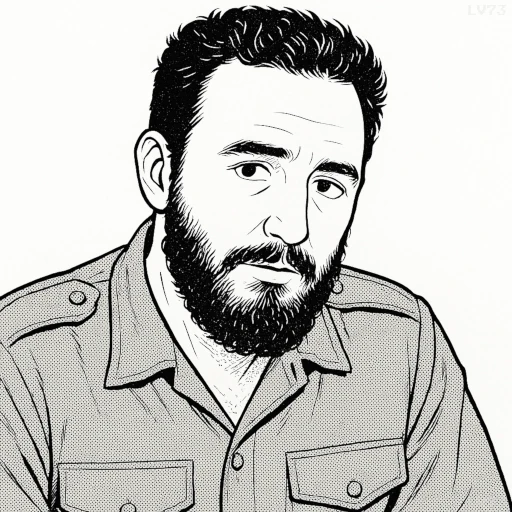“The kings of Spain brought us the conquistadores and masters, whose footprints remained in the circular land grants assigned to those searching for gold in the sands of rivers, an abusive and shameful form of exploitation, traces of which can be noted from the air in many places around the country.”

- August 13, 1926 – November 25, 2016
- Cuban
- Revolutionary, Prime Minister and President of Cuba, Communist Leader
table of contents
Quote
“The kings of Spain brought us the conquistadores and masters, whose footprints remained in the circular land grants assigned to those searching for gold in the sands of rivers, an abusive and shameful form of exploitation, traces of which can be noted from the air in many places around the country.”
Explanation
This quote reflects Fidel Castro’s indictment of Spanish colonialism in Cuba, tracing its exploitative legacy through both history and geography. By referring to the “kings of Spain” and their delivery of “conquistadores and masters,” Castro points to the brutal system of colonization, in which indigenous lands and labor were seized and commodified. The mention of “circular land grants”—used during the Spanish conquest to allocate territory for gold extraction—underscores how deeply economic exploitation was embedded into the physical and social fabric of the island.
Castro’s observation that these traces can still be seen “from the air in many places around the country” reinforces his point: the visible scars of colonialism remain, both as literal marks on the land and as metaphors for enduring inequality and underdevelopment. The use of words like “abusive” and “shameful” makes clear his moral judgment of the colonial legacy, which he sought to overturn through the revolution’s emphasis on sovereignty, land reform, and social justice.
In today’s context, the quote serves as a reminder of how the consequences of colonial systems continue to shape contemporary societies, particularly in the Global South. Castro’s words challenge us to recognize that history is not past—it is embedded in land, memory, and structures of power, and that confronting these legacies is essential to achieving real liberation. His statement ties the revolution’s goals to a longer historical arc, in which overcoming colonial injustice remains central to national identity and progress.
Would you like to share your impressions or related stories about this quote in the comments section?



